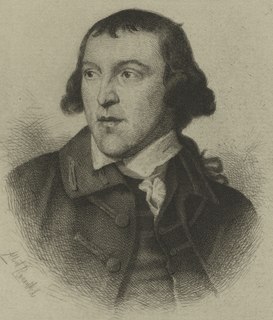 W
WAndrew Allen was a lawyer and official from the Province of Pennsylvania. Born into an influential family, Allen initially favored the colonial cause in the American Revolution, and represented Pennsylvania in the Second Continental Congress from 1775 to 1776. Like many other wealthy elites in Pennsylvania, however, he resisted radical change, and became a Loyalist after the Declaration of Independence and the Pennsylvania Constitution of 1776.
 W
WJohn Armstrong Jr. was an American soldier and statesman who was a delegate to the Continental Congress, U.S. Senator from New York, and Secretary of War.
 W
WJohn Bubenheim Bayard was a merchant, soldier, and statesman from Philadelphia, Pennsylvania. He achieved the rank of colonel while serving with the Continental Army, and was a delegate for Pennsylvania to the Congress of the Confederation in 1785 and 1786. Later he was elected as mayor of New Brunswick, New Jersey.
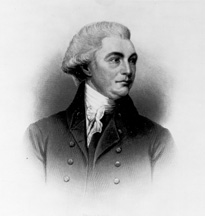 W
WWilliam Bingham was an American statesman from Philadelphia. He was a delegate for Pennsylvania to the Continental Congress from 1786 to 1788 and served in the United States Senate from 1795 to 1801. Bingham was one of the wealthiest men in the United States during his lifetime, and was considered to be the richest person in the U.S. in 1780.
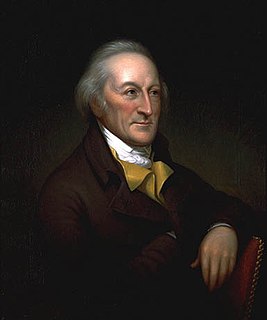 W
WGeorge Clymer was an American politician and Founding Father of the United States, signing both the Declaration of Independence and the U.S. Constitution. Clymer was one of 34 Signers of the Declaration of Independence that did not own slaves. He was the first president of the Pennsylvania Society for the Abolition of Slavery. He was one of the first Patriots to advocate complete independence from Britain. He attended the Continental Congress and served in political office until the end of his life.
 W
WTench Coxe was an American political economist and a delegate for Pennsylvania to the Continental Congress in 1788–1789. He wrote under the pseudonym "A Pennsylvanian," and was known to his political enemies as "Mr. Facing Bothways."
 W
WJohn Dickinson, a Founding Father of the United States, was a solicitor and politician from Philadelphia, Pennsylvania, and Wilmington, Delaware, known as the "Penman of the Revolution" for his twelve Letters from a Farmer in Pennsylvania, published individually in 1767 and 1768. As a member of the First Continental Congress, where he was a signee to the Continental Association, Dickinson drafted most of the 1774 Petition to the King, and then, as a member of the Second Continental Congress, wrote the 1775 Olive Branch Petition. When these two attempts to negotiate with King George III of Great Britain failed, Dickinson reworked Thomas Jefferson's language and wrote the final draft of the 1775 Declaration of the Causes and Necessity of Taking Up Arms. When Congress then decided to seek independence from Great Britain, Dickinson served on the committee that wrote the Model Treaty and then wrote the first draft of the 1776–1777 Articles of Confederation and Perpetual Union. Dickinson later served as president of the 1786 Annapolis Convention, which called for the Constitutional Convention of 1787. Dickinson attended the Convention as a delegate from Delaware.
 W
WThomas Fitzsimons was an Irish-American merchant and statesman of Philadelphia. He represented Pennsylvania in the Continental Congress, the Constitutional Convention, and the U.S. Congress. He was a signatory of the Constitution of the United States and is considered one of the Founding Fathers of the United States.
 W
WBenjamin Franklin was an American polymath who was active as a writer, scientist, inventor, statesman, diplomat, printer, publisher and political philosopher. Among the leading intellectuals of his time, Franklin was one of the Founding Fathers of the United States and the first United States Postmaster General. As a scientist, he was a major figure in the American Enlightenment and the history of physics for his discoveries and theories regarding electricity. As an inventor, he is known for the lightning rod, bifocals, and the Franklin stove, among other inventions. He founded many civic organizations, including the Library Company, Philadelphia's first fire department, and the University of Pennsylvania. Franklin earned the title of "The First American" for his early and indefatigable campaigning for colonial unity, initially as an author and spokesman in London for several colonies. As the first United States Ambassador to France, he exemplified the emerging American nation. Franklin was foundational in defining the American ethos as a marriage of the practical values of thrift, hard work, education, community spirit, self-governing institutions, and opposition to authoritarianism both political and religious, with the scientific and tolerant values of the Enlightenment. In the words of historian Henry Steele Commager, "In Franklin could be merged the virtues of Puritanism without its defects, the illumination of the Enlightenment without its heat." To Walter Isaacson, this makes Franklin "the most accomplished American of his age and the most influential in inventing the type of society America would become."
 W
WJoseph Galloway was an American politician. He became a Loyalist during the American Revolutionary War, after serving as delegate to the First Continental Congress from Pennsylvania. For much of his career in Pennsylvania politics, he was a close ally of Benjamin Franklin, and he became a leading figure in the colony. As a delegate to the Continental Congress, Galloway was a moderate and proposed a Plan of Union which would have averted a full break from Britain. When that was rejected, he moved increasingly towards Loyalism.
 W
WEdward Hand was an Irish soldier, physician, and politician who served in the Continental Army during the American Revolutionary War, rising to the rank of general, and later was a member of several Pennsylvania governmental bodies.
 W
WJared Ingersoll was an American lawyer and statesman from Philadelphia, Pennsylvania. He was a delegate to the Continental Congress and a signer of the United States Constitution. He served as DeWitt Clinton's running mate in the 1812 election, but Clinton and Ingersoll were defeated by James Madison and Elbridge Gerry.
 W
WWilliam Irvine was an Irish-American physician, soldier, and statesman from Carlisle, Pennsylvania. He practiced medicine as a ship's surgeon for the Royal Navy before he sympathized with the American Revolution and fought against the British during the American Revolutionary War. As tensions escalated between the American colonies and the British government during the 1770s, Irvine sympathized and allied himself with the revolutionary cause. He subsequently served as a brigadier general in the American Revolutionary War and served in the western theater. After the war he served in the Continental Congress, and later played an active role in ending the Whiskey Rebellion in Pennsylvania. He also served two terms in Congress representing Pennsylvania, and was also active in the state's other public affairs.
 W
WTimothy Matlack was a brewer and beer bottler who emerged as a popular and powerful leader in the American Revolutionary War, Secretary of Pennsylvania during the war, and a delegate to the Second Continental Congress in 1780. He became one of Pennsylvania's most provocative and influential political figures, but he was removed from office by his political enemies at the end of the war; however, he returned to power in the Jeffersonian era. Matlack was known for his excellent penmanship and was chosen to inscribe the original United States Declaration of Independence on vellum.
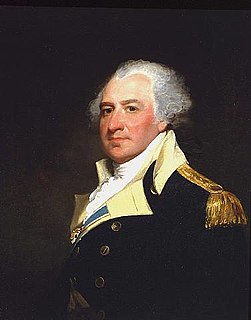 W
WThomas Mifflin was an American merchant, soldier, and politician from Philadelphia, Pennsylvania. He served in a variety of roles during and after the American Revolution, several of which qualify him to be counted among the Founding Fathers. He was the first Governor of Pennsylvania, serving from 1790 to 1799; he was also the last President of Pennsylvania, succeeding Benjamin Franklin and serving from 1788 until 1790.
 W
WRobert Morris, Jr. was an English-born merchant and a Founding Father of the United States. He served as a member of the Pennsylvania legislature, the Second Continental Congress, and the United States Senate, and he was a signer of the Declaration of Independence, the Articles of Confederation, and the United States Constitution. From 1781 to 1784, he served as the Superintendent of Finance of the United States, becoming known as the "Financier of the Revolution." Along with Alexander Hamilton and Albert Gallatin, he is widely regarded as one of the founders of the financial system of the United States.
 W
WJohn Morton was a farmer, surveyor, and jurist from the Province of Pennsylvania and a Founding Father of the United States. As a delegate to the Continental Congress during the American Revolution, he was a signatory to the Continental Association and the United States Declaration of Independence. Morton provided the swing vote that allowed Pennsylvania to vote in favor of the United States Declaration of Independence. Morton chaired the committee that wrote the Articles of Confederation.
 W
WFrederick Augustus Conrad Muhlenberg was an American minister and politician who was the first Speaker of the United States House of Representatives. A delegate to the Pennsylvania state constitutional convention and a member of the U.S. House of Representatives from Pennsylvania and a Lutheran pastor by profession, Muhlenberg was born in Trappe, Pennsylvania. His home, known as The Speaker's House, is now a museum and is currently undergoing restoration to restore its appearance during Muhlenberg's occupancy.
 W
WRichard Peters was a Pennsylvania lawyer, Continental Army soldier, Federalist politician, author and United States District Judge. Before his federal judicial service in the United States District Court for the District of Pennsylvania, Peters served as secretary of the Continental Board of War, delegate to the Congress of the Confederation and as member and speaker of the Pennsylvania House of Representatives and later the Pennsylvania State Senate. His son of the same name, Richard Peters became reporter of the decisions of the United States Supreme Court.
 W
WCharles Pettit was an American lawyer and merchant from New Jersey and Philadelphia, Pennsylvania. He served as a delegate for Pennsylvania to the Confederation Congress from 1785 to 1787.
 W
WJoseph Reed was a lawyer, military officer and statesman of the American Revolutionary Era who lived the majority of his life in Pennsylvania. He served as a delegate to the Continental Congress and, while in Congress, signed the Articles of Confederation. He also served as President of Pennsylvania's Supreme Executive Council, a position analogous to the modern office of Governor.
 W
WGeorge Ross Jr was a signer of the Continental Association and the United States Declaration of Independence as a representative of Pennsylvania. He was also the uncle of the man who married Betsy Griscom in 1773, giving her her famous married name: Betsy Ross. In 1952, he, George Washington, and Robert Morris appeared on a three-cent stamp commemorating Betsy Ross.
 W
WBenjamin Rush was a signer of the United States Declaration of Independence and a civic leader in Philadelphia, where he was a physician, politician, social reformer, humanitarian, and educator and the founder of Dickinson College. Rush attended the Continental Congress. His later self-description there was: "He aimed right." He served as Surgeon General of the Continental Army and became a professor of chemistry, medical theory, and clinical practice at the University of Pennsylvania.
 W
WWilliam Shippen Sr. was an American physician from Philadelphia, Pennsylvania. He was also a civic and educational leader who represented Pennsylvania in the Continental Congress.
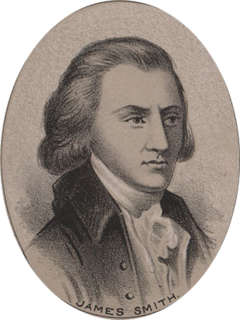 W
WJames Smith, was an Irish/American lawyer and a signer to the United States Declaration of Independence as a representative of Pennsylvania.
 W
WJonathan Bayard Smith was an American merchant from Philadelphia, Pennsylvania. He served as a delegate for Pennsylvania to the Continental Congress in 1777 and 1778. Smith was a signatory to the Articles of Confederation.
 W
WArthur St. Clair was a Scottish-American soldier and politician. Born in Thurso, Scotland, he served in the British Army during the French and Indian War before settling in Pennsylvania, where he held local office. During the American Revolutionary War, he rose to the rank of major general in the Continental Army, but lost his command after a controversial retreat from Fort Ticonderoga.
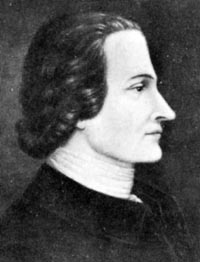 W
WGeorge Taylor was a Colonial ironmaster and a signer of the United States Declaration of Independence as a representative of Pennsylvania. Today, his former home, the George Taylor House in Catasauqua, Lehigh County, Pennsylvania, is a National Historic Landmark owned by the Borough of Catasauqua.
 W
WThomas Willing was an American merchant, politician and slave trader who served as mayor of Philadelphia and was a delegate from Pennsylvania to the Continental Congress. He also served as the first president of the Bank of North America and the First Bank of the United States.
 W
WJames Wilson was an American statesman, politician, legal scholar, and Founding Father who served as an Associate Justice of the United States Supreme Court from 1789 to 1798. He was elected twice to the Continental Congress, was a signatory of the United States Declaration of Independence, and was a major force in drafting the United States Constitution. A leading legal theorist, he was one of the six original justices appointed by George Washington to the Supreme Court of the United States. In his capacity as first Professor of Law at the University of Pennsylvania, he taught the first course on the new Constitution to President Washington and his cabinet in 1789 and 1790.
 W
WHenry Wynkoop was a member of the Continental Congress and later a United States Representative for the state of Pennsylvania during the First United States Congress, 1789 to 1791.